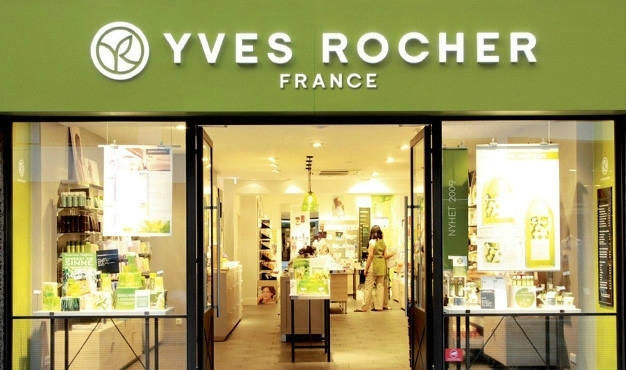Beauty, aesthetics, and wellness franchises in Spain: opportunities, challenges, and trends

Madrid, May 7, 2025
The beauty, aesthetics, and wellness franchise sector in Spain is consolidating as one of the most dynamic and attractive areas within the franchised business model. With growing demand for personal care services, driven by social trends and technological advancements, this vertical offers opportunities for both entrepreneurs and investors. However, it faces significant challenges related to high customer turnover, reliance on human talent, and the need for constant innovation. This article, developed by the team at Franchise Innovation Summit, provides an in-depth analysis of the market, leading brands, franchisee profiles, opportunities, challenges, emerging trends, and the impact of proximity in the sector, offering a strategic guide for those who wish to successfully franchise in this field.
Market size
More broadly, the perfume and cosmetics market in Spain and Portugal reached 6.708 billion euros in 2022, with a year-on-year growth of 10.6%, highlighting the skincare segment (31.4% of the total). Within the franchised domain, the most relevant categories include hair salons, nail centers, laser hair removal, spas, and advanced aesthetic clinics, with a growing focus on non-invasive and personalized treatments.
Leading companies and franchise brands
The sector features a wide variety of brands operating under the franchise model, ranging from specialized concepts to comprehensive beauty centers. Below are some of the most prominent brands:
Grupo Provalliance: It is the largest hair salon operator in Europe, with a significant presence in more than 30 countries and a network of more than 3,500 salons worldwide. In Spain, it has more than 200 centers, consolidating its position as the market leader in the beauty and hairdressing sector. Llongueras, Jean Louis David, Frank Provost, The Barber Company, Carlos Conde are the brands that allow the Provalliance Group to adapt to the diverse needs and preferences of customers in different markets.
Yves Rocher: French brand, a pioneer in plant-based cosmetics, founded in 1959, has consolidated its international presence with more than 1,600 stores in 115 countries. In Spain, it has a solid franchise network that combines the sale of beauty products with aesthetic services, offering a comprehensive customer experience.
Beauty Max: A leader in comprehensive aesthetics, with a presence in Europe and America, specializing in hair salons, barbershops, nails, and laser hair removal. It stands out for its technological support and ongoing training.
d-uñas: It's a successful, internationally recognized business model with proven experience spanning over 15 years in more than eight countries. With its EcoBeauty philosophy, reflected in every one of its actions, it has a strong commitment to the beauty and health of its clients and professionals, as well as to environmental protection.
No + Vello: Specialist in IPL and diode laser hair removal, with over 12 years of experience and an accessible business model based on competitive prices.
Nails Factory: With more than 150 franchises in Spain, it focuses on nail care and decoration, with a low initial investment (from 22,900 euros) and high profitability.
Dermo + Estética: An innovator in laser hair removal, tattoo removal, and non-invasive treatments, it offers 100% financing of the initial investment.
Depilattia Spa: It combines hair removal (electric, laser, thread) with spa-relaxation services, facial and body aesthetics, and hairdressing.
Sundara: A pioneer in threading, they also offer manicures, pedicures, massages, and bio-certified cosmetics.
Lashes & More: Specializing in eyelash extensions, microblading, and eyebrow design, with more than 20 locations in Spain.
La Belleza del Alma: An eco-friendly and vegan franchise focused on threading and organic cosmetics, established since 2008.
Centros Único: Especializados en depilación láser y medicina estética, con más de 10 años de experiencia.
These brands reflect the diversity of the sector, which combines low-cost offerings with premium services, adapting to different consumer segments and locations.
Franchisee profiles
Franchisees in this sector vary, but typically fall into two main categories:
Entrepreneurs passionate about beauty: Individuals, often women, with training in aesthetics, hairdressing, or wellness, seeking self-employment or financial independence. This profile values ongoing training and support from the franchisor, such as Dermo + Estética, which provides comprehensive support.
Investors: Individuals or groups with financial means who seek profitability without necessarily getting involved in day-to-day management. Brands like Beauty Max or No + Vello attract this profile by delegating operations to teams trained by headquarters.
The sector doesn't require large premises (often 15-75 m² is sufficient), which lowers the barriers to entry. Initial investment ranges from €15,000 for nail franchises like Hello Nails to €150,000 for full-service centers like Beauty Max. Furthermore, 60% of companies in the sector are SMEs with family structures, which favors flexibility and a close relationship.
Opportunities in the sector
Growing demand for personal care: Spain is the leading European country in terms of concern for physical appearance, with 400,000 cosmetic surgeries per year and a spending of €175 million on these procedures. Demand extends to both women and men, as well as young people, expanding the market.
Low initial investment: Franchises like Nails Factory or Hello Nails require investments of €15,000–€25,000, ideal for self-employed individuals or investors with limited budgets.
Proven models: The backing of established brands reduces risk by offering training, marketing, and advanced technology, as with Dermo + Estetica or Beauty Max.
New niches: Specializations such as threading (Sundara), wood therapy (Maderoesthetic), or vegan aesthetics (La Belleza del Alma) are attracting specific segments.
International Expansion: Brands like Beauty Max and No + Vello operate in multiple countries, offering opportunities for global growth.
Sector challenges
Despite its attractiveness, the sector faces critical challenges:
High customer turnover: Loyalty is a challenge due to competition and the search for low prices. Franchises must invest in personalized experiences and loyalty programs to retain customers.
Reliance on human talent: Personnel are the greatest risk and asset. High employee turnover, the need for ongoing training, and the demand for technical and customer service skills are crucial. Brands like Provalliance stand out for their training programs, but talent management remains a challenge.
Intense competition: The proliferation of independent centers and low-cost chains is putting pressure on margins. Franchises must differentiate themselves through technology, quality, and digital marketing.
Constant innovation: The rapid evolution of treatments (radiofrequency, cavitation, diode laser) requires continuous investment in equipment and training.
Regulation and safety: Aesthetic treatments, especially medical-aesthetic ones, are subject to strict regulations, which require strict compliance to avoid penalties.
Emerging trends
The sector is constantly evolving, driven by the following trends:
Non-invasive treatments: Demand for procedures such as radiofrequency, cavitation, and diode laser is growing due to their effectiveness and minimal recovery time, favoring brands like Dermo + Estética.
Personalization: Customers are looking for treatments tailored to their needs, from skin analysis to specific plans, which is driving the adoption of digital tools for tracking and loyalty.
Sustainability and Ethics: Franchises like La Belleza del Alma and Kou Kumu lead the way with vegan, organic, and cruelty-free products, attracting conscious consumers.
Digitalization: Social media marketing and digital appointment and customer management are essential. Almost all leading brands are integrating technology to streamline processes and improve the customer experience.
Proximity and accessibility: Centers in easily accessible neighborhoods and shopping centers are key, especially for quick services like manicures or waxing, as is the case with Nails Factory.
The Importance of proximity
Proximity is a strategic factor in the beauty and wellness sector. Consumers value the convenience of centers close to their homes or workplaces, especially for recurring services such as manicures, pedicures, or waxing. Many of these brands thrive in high-traffic locations, such as shopping malls or high streets, with small stores (15-40 m²) that reduce operating costs. This proximity strategy not only increases customer acquisition but also encourages repeat business, crucial in a sector with high turnover.
Keys to Successful Franchising: Managing Talent as a Priority
The title "Your Staff Is Your Greatest Risk: Keys to Successful Franchising in Aesthetics" encapsulates a fundamental principle. The success of a franchise depends largely on the quality and stability of its team. Below are key strategies for overcoming this and other challenges:
Invest in ongoing training: Refresher programs, new techniques, equipment, and instrumentation ensure that staff master the latest techniques and provide exceptional service.
Encourage talent retention: Offering incentives, a positive work environment, and growth opportunities reduces employee turnover.
Personalization and Customer Experience: Implement analytics and CRM technologies to tailor treatments and improve customer satisfaction.
Differentiation through innovation: Adopting cutting-edge equipment and innovative treatments to stand out from the competition.
Effective digital marketing: Invest in social media and local SEO to attract customers in nearby areas.
Efficient management: Use management systems to optimize appointments, billing, and inventory control.
Conclusion
The beauty, aesthetics, and wellness franchise sector in Spain offers a promising outlook, with an expanding market, established brands, and opportunities for diverse franchisee profiles. However, success requires overcoming challenges such as high customer and employee turnover, intense competition, and the need for constant innovation. Trends toward non-invasive treatments, personalization, sustainability, and digitalization are redefining the sector, while proximity is consolidating as a key factor in attracting and retaining customers. To franchise successfully, brands must prioritize human talent management, invest in technology, and offer exceptional experiences that build customer loyalty. With a strategic approach, this sector will continue to be a gold mine for entrepreneurs and investors.






